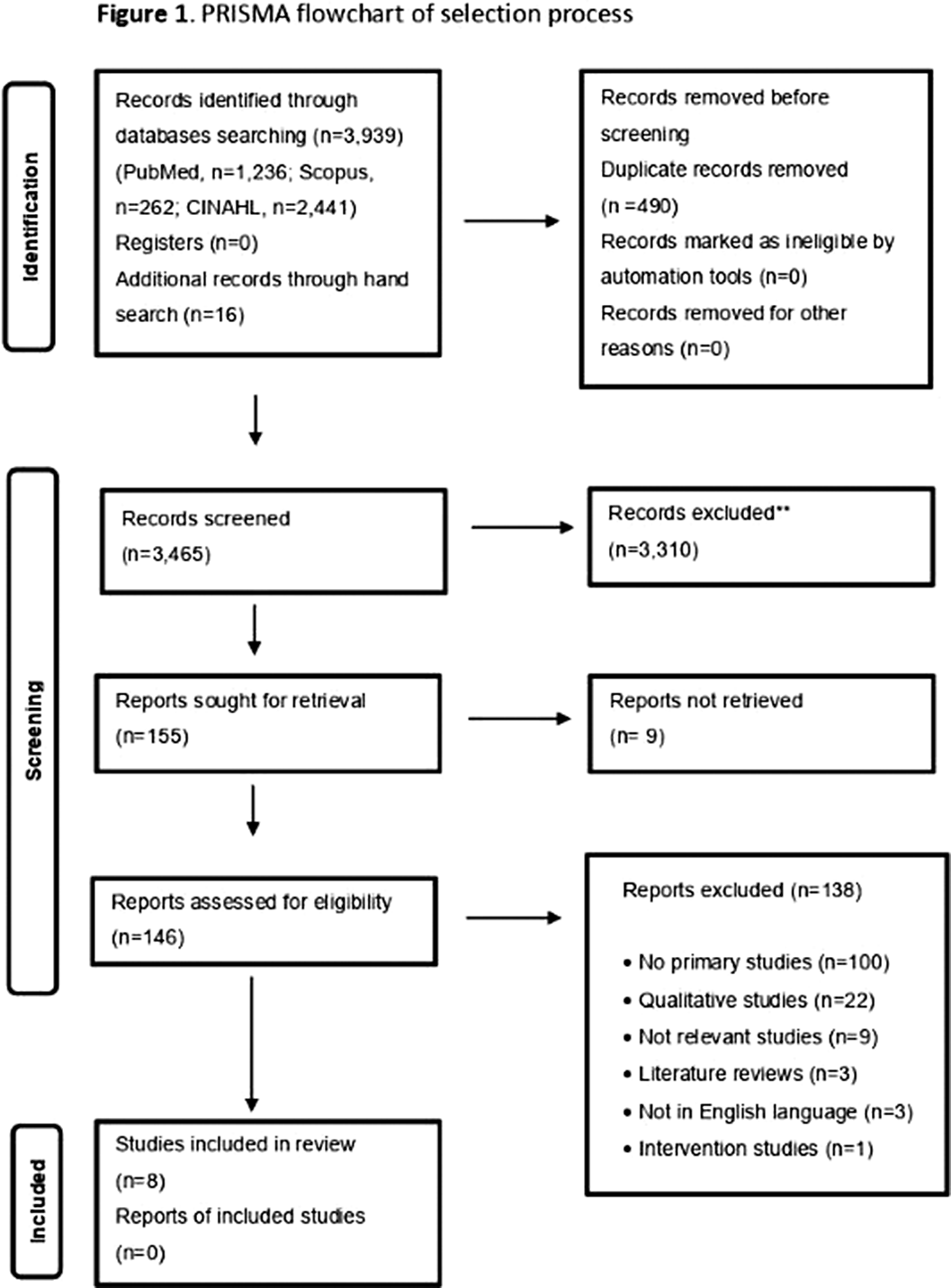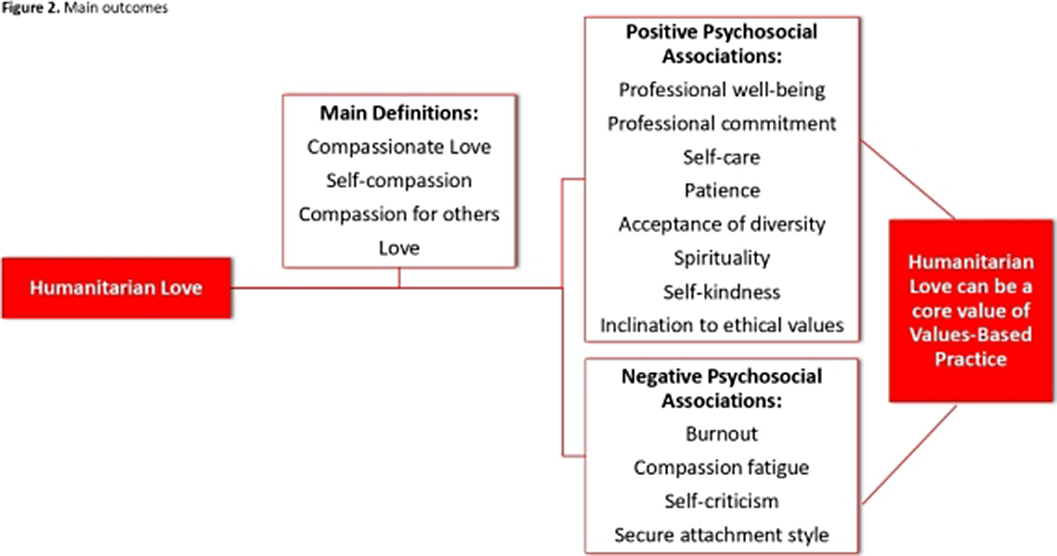No CrossRef data available.
Published online by Cambridge University Press: 27 August 2024
The literature on Values-Based Practice often neglects the significance of love in therapeutic interactions, sometimes treating it as taboo or crossing professional boundaries.
This systematic review investigates the role of humanitarian love in the lives of healthcare professionals and its psychosocial impact, aiming to establish it as a core value in values-based practice.
We conducted a PRISMA 2020-compliant systematic review, searching databases (CINAHL, PubMed, Scopus) from inception to April 3, 2023, using PEO elements: health professionals (P), love (E), psychosocial impact (O). Two independent reviewers conducted screening, data extraction, and bias assessment. A narrative synthesis of the data was applied. The selection process is presented in Figure 1.
Eight articles met the inclusion criteria, comprising 1,948 participants (median age: 28.55). Humanitarian love encompassed compassionate love, self-compassion, and affection. Humanitarian love showed a negative correlation with burnout, compassion fatigue, self-judgment, and secure attachment, while positively correlating with professional well-being, professional commitment, self-care, patience, diversity acceptance, spirituality, self-kindness, and ethical values. Humanitarian love significantly influenced healthcare professionals’ psychosocial well-being. The main outcomes are presented in Figure 2.
Image:

Image 2:

This review highlights humanitarian love’s potential to enhance the psychosocial well-being of healthcare professionals and emphasizes its significance as a core value in values-based practice. Cultivating humanitarian love among healthcare professionals through research and interventions could bolster their resilience, job satisfaction, and overall fulfillment in their roles.
None Declared
Comments
No Comments have been published for this article.